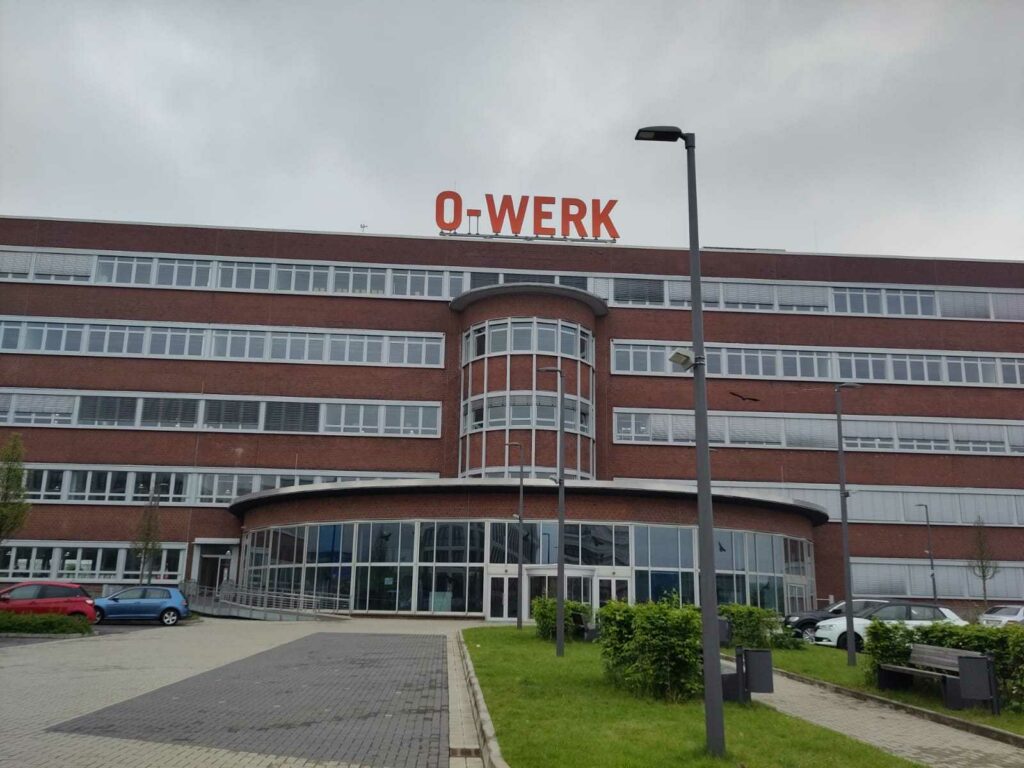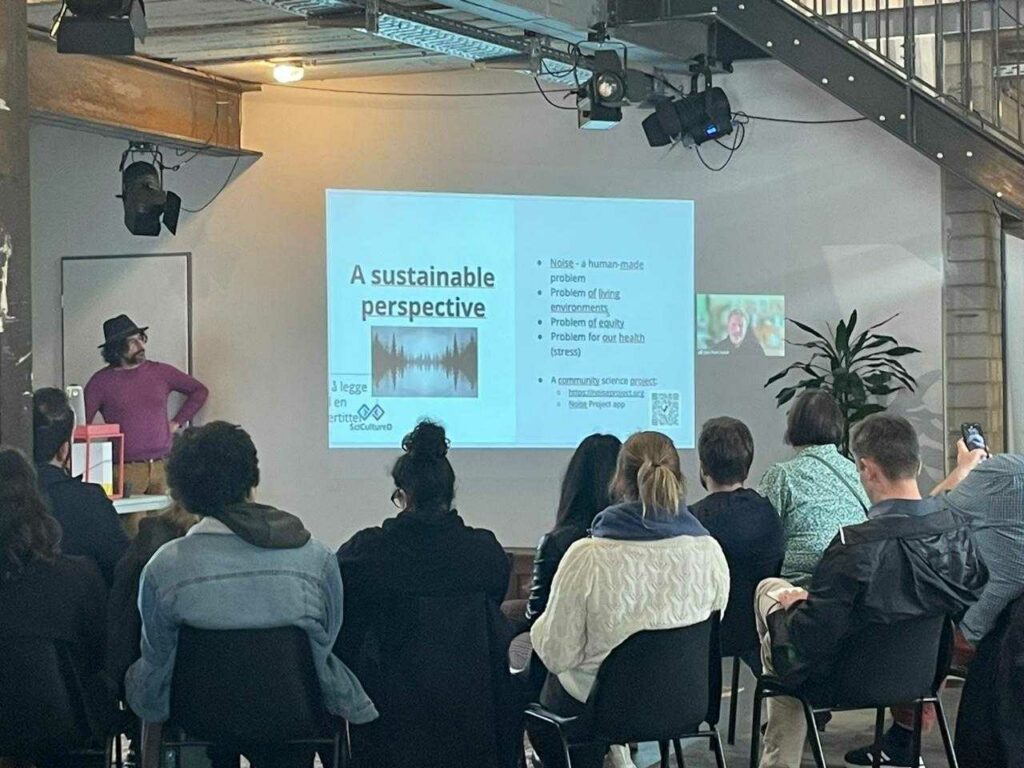Intensive Course - Bochum 2023
Courses > Bochum 2023
Why does transformation need Third Places and how can they be designed?
Third places are open spaces that differ from the two other environments we live in private homes and workplaces, schools and universities. Examples of third places include cafes, maker spaces, public libraries, bookstores, and arts organizations like galleries, theaters, and museums but also “virtual spaces” that offer accessible meeting opportunities on a “neutral ground”.
From the 8th until the 12th of May 2023, SciCultureD participants from different backgrounds and stakeholders from the city of Bochum developed and co-created innovative ideas on how to create “Third Places” as centers for more inclusive, participatory and sustainable communities.
An inner pespective:
listen the stories from our participants
Watch the testimonials from:
Lara Schilling, research assistant at Bochum University of Applied Sciences in the department of Sustainability, Transfer and Entrepreneurship.
Mikiel Cassar, anthropology student at the University of Malta.
Anne Skaar, Assistant Professor at the Department of Welfare and Participation, HVL, Sogndal, Norway.
SciCultureD Ambassadors Testimonials
The SciCultureD course integrated the Double Diamond approach with 8 Creative Pedagogies, eight practical features of a creative science education identified by the CREATIONS team. These pedagogical features guided the design of the course (present as card suite in the Course Kit planning tool) and strongly emerging during the activities.
The underlying method: Design Thinking
Design thinking is a methodology to understand problems and provide solutions.
It is a framework based on the principles of Empathise, Define, Ideate, Prototype and Test.
This course focuses on the British Design Council Double Diamond methodology.
Criticality of design thinking focuses on it being a WEIRD methodology, formalisation of existing structures.
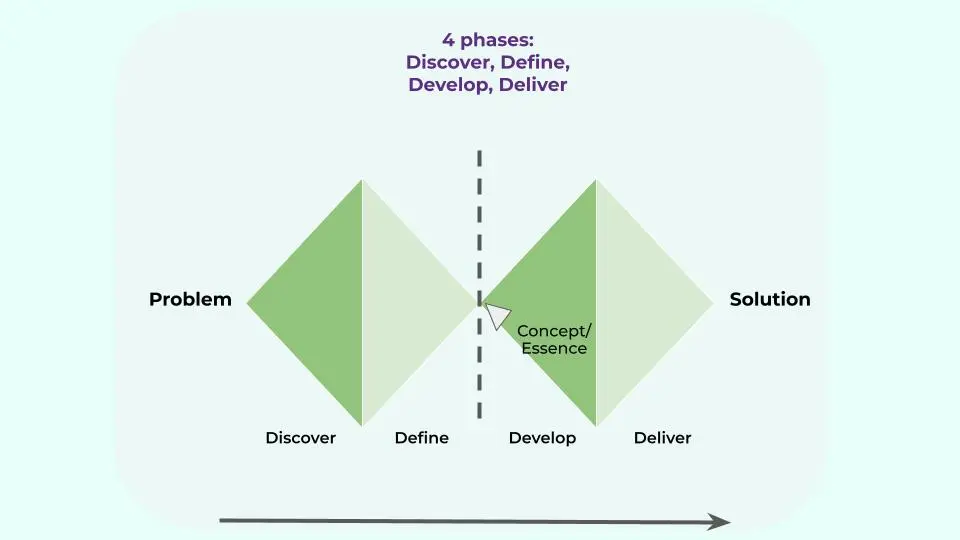 Credits: Kristine Pace
Credits: Kristine Pace
SciCultureD Creative Pedagogic Features
Creative Pedagogy is the science and art of creative teaching. In this course we touched upon: Embodied Dialogue, Transdisciplinarity, Individual, collaborative and communal activities for change, Ethics and trusteeship, Empowerment and agency, Risk, immersion and play, Possibilities, Balance and navigation.
Defining the challenge: what problem are we trying to solve?
The “Challenge” is the common thread that runs through the course which enables participants to work within teams to examine, re-imagine and respond to a subject/issue of contemporary society. It allows facilitators and participants to connect all the course’s different elements/disciplines to a specific theme relevant to our world.
How could we activate “third places” as future venues for the co-production and sharing of knowledge? How could these places represent the diversity that exists in their surrounding community? Which methodologies, spaces, and tools could be integrated to activate “third places” as venues for transdisciplinary collaborations? What could educational institutions learn from these places?
The project SciCultureD run a Design Thinking Intensive Course trying to find solutions to these questions.
How can museums act as venues of cultural transformation in the Ruhr region?
The participants were invited to join the UniverCity Forum, the network of seven universities in Bochum, three research institutions and other partners to promote cooperation between science and the city on topics based on needs. Taking place in the suggestive entrance of the German Mining Museum – a central venue for the history and culture of the region, participants joined external stakeholders from the local community at the world café tables: diverse groups explored the role of museums, if they can be considered third places and what’s their roles in society and for the present and future of local communities. Through this experience, participants had the chance to further familiarize with the local context while enriching the tables with their own background.
MOVEMENT SESSION
Stage of the Design Thinking process: Define(convergent)
This workshop led by Kerry Chappell (HVL) engaged participants in embodied dialogues to:
- Be able to take the risk of exploring the potential, limits and material conditions of third places through the body in order to generate open-ended responses
- Be able to work individually, collaboratively and communally to create abstract interactions which help to create redefine or transform third places and their role in society.
Exploring Bochum’s Third Places
Participants where asked to explore the Third Places in the city centre and to record sounds, videos, photographs which linked to, or reminded them of, their experience of a third place. Many had the chance to interact with local dwellers or workers to further explore such venues.
Developing structured, creative stories for Third Places & Soundscape sessions
Stage of the Design Thinking process: Develop (Diverge)
Facilitators: Menelaos Sotiriou, Dr. Dimitrios Sotiropoulos, Hans-Mark Svedal
During this session, the participants:
- Develop the idea of creating a new “Third Place”.
- Develop a story based on your idea (the way to implement a third place)
- Use sounds as a way to enhance or support the group’s idea of a Third Place, taking into consideration the previously defined essence of the challenge the group is addressing.
- Use sounds as a way to develop the group’s idea of a Third Place, taking into consideration the previously defined essence of the challenge.
3D-Print your thoughts and building your vision of a Third Place and Business Canvas Model sessions
Stage of the Design Thinking process: Develop (Diverge)
Facilitators: Esther RÜßLER (city2science) and Edward Duca (UM)
This workshop provided participants with all kinds of materials Lego materials to build their vision of an innovative model for a Third Place! Through this creative and maker-based exercise participants gained yet another perspective on the challenge of how to design Third Places. This will helped the groups to define their problem statement. The problem statement is a unique scenario that you define from the information gathered so far.
The workshop was combined with the business canvas model that helped participants deliver their third place in more detail: who is the third place that you design for? What is its (main) purpose? What are the resources and partners that you need in order to turn your ideas into reality?
Sharing session
The outcome of the course can be extremely open and creative: a public performance, a group portfolio, an actual product, a company pitch or a community intervention.

Photogallery
Photo credits: ScicultureD (Erasmus+ funded)
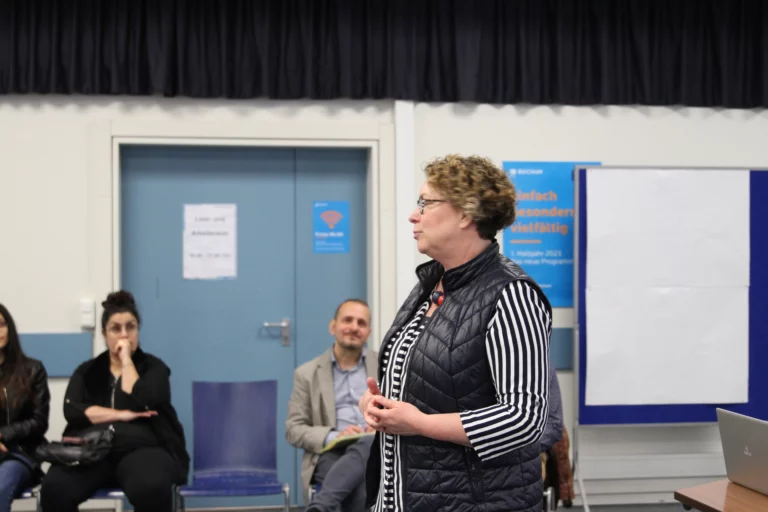
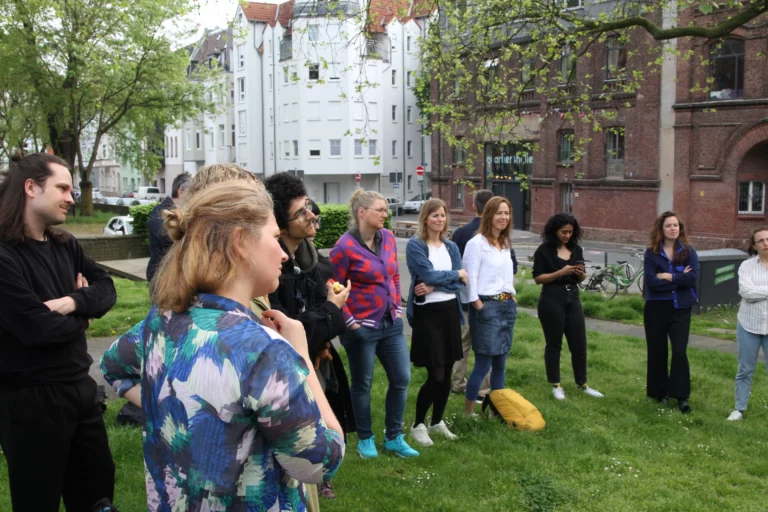
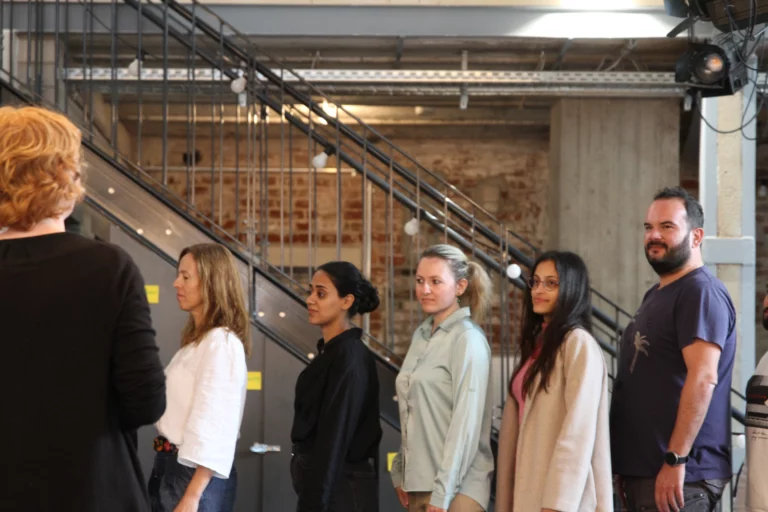
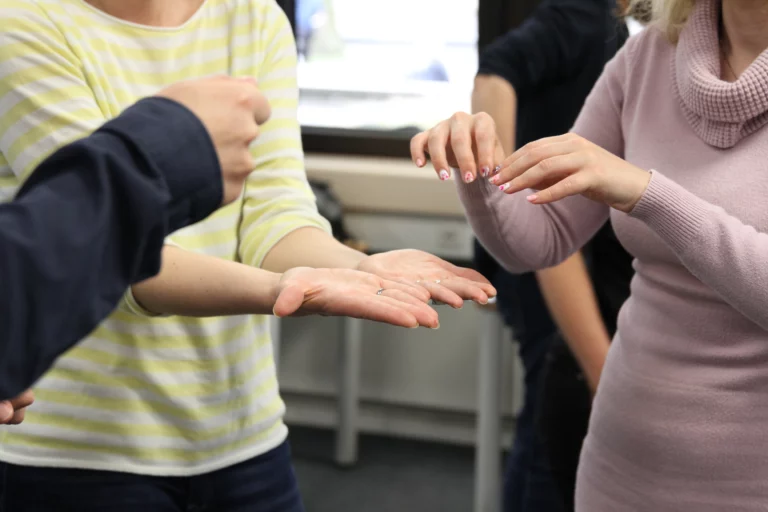
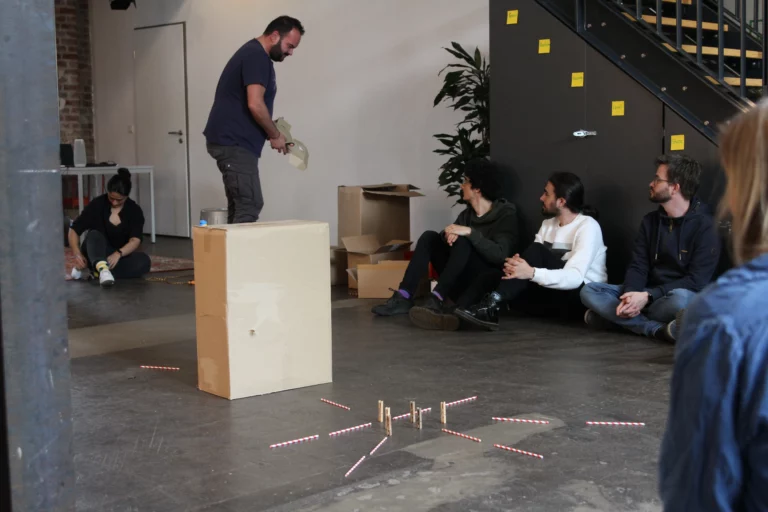
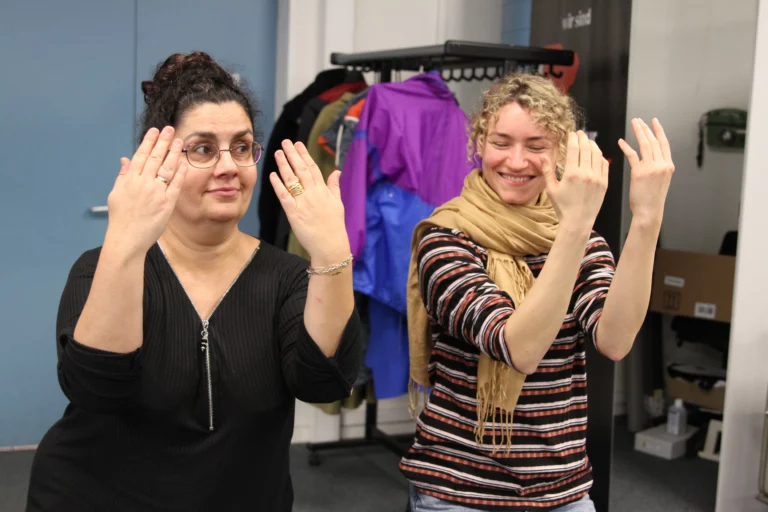
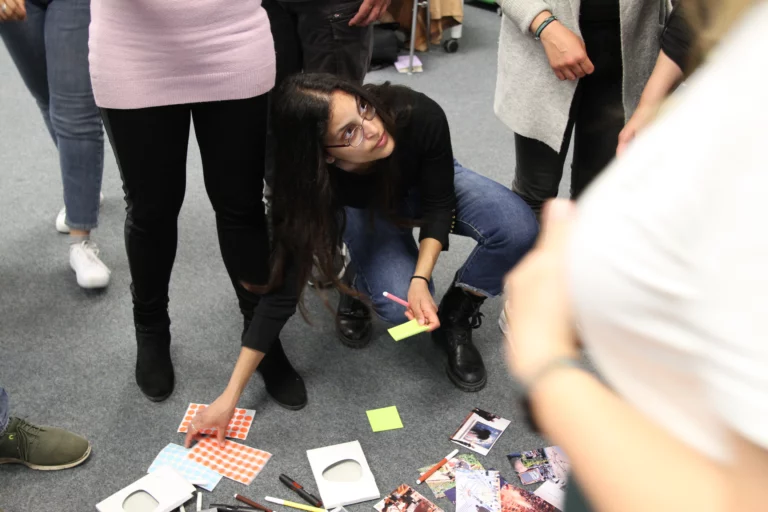
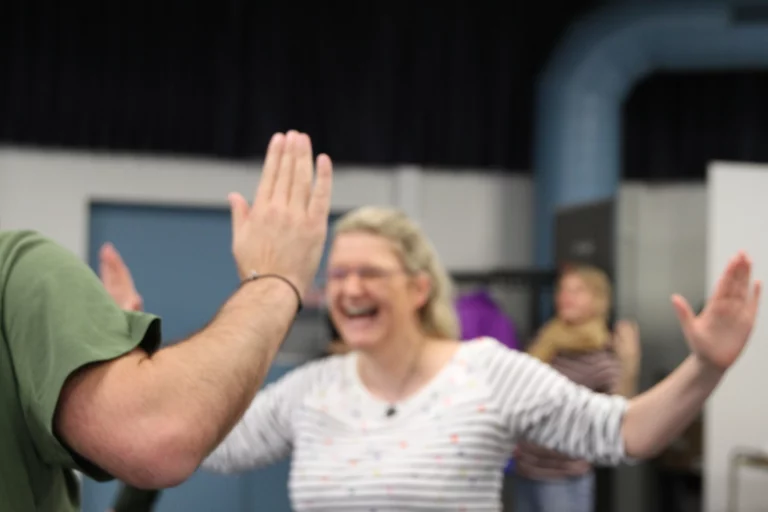
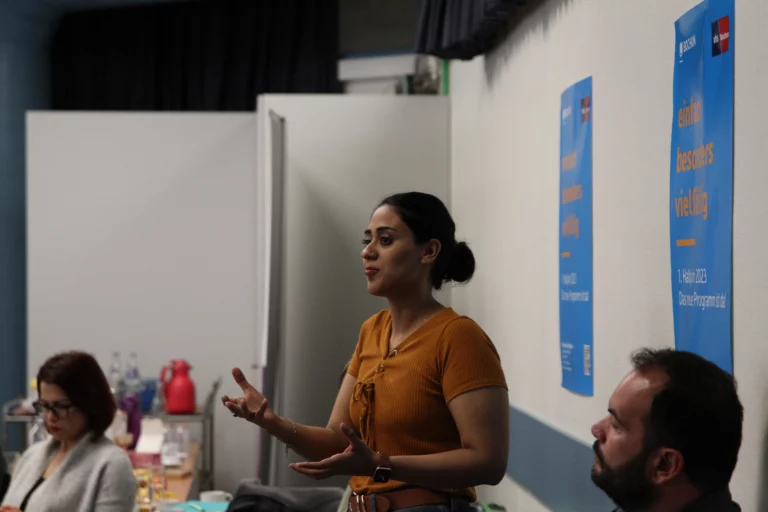
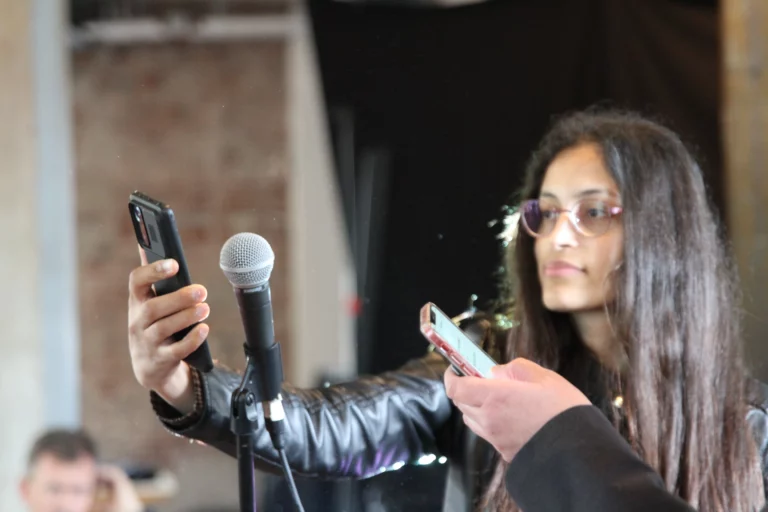
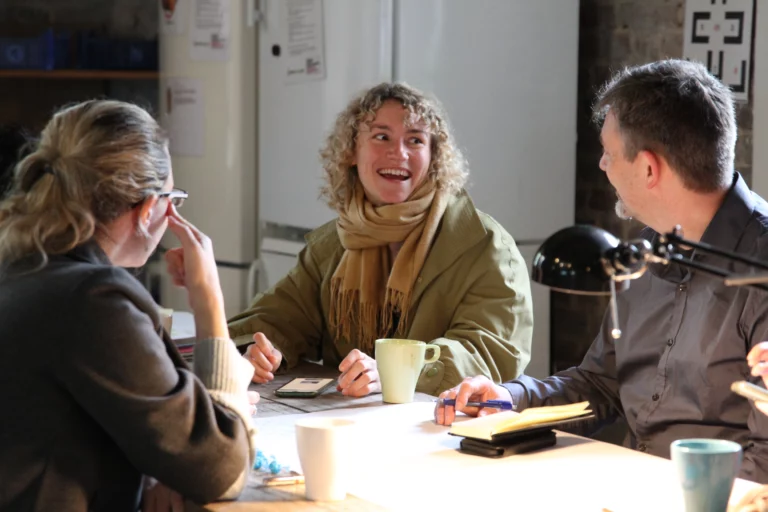
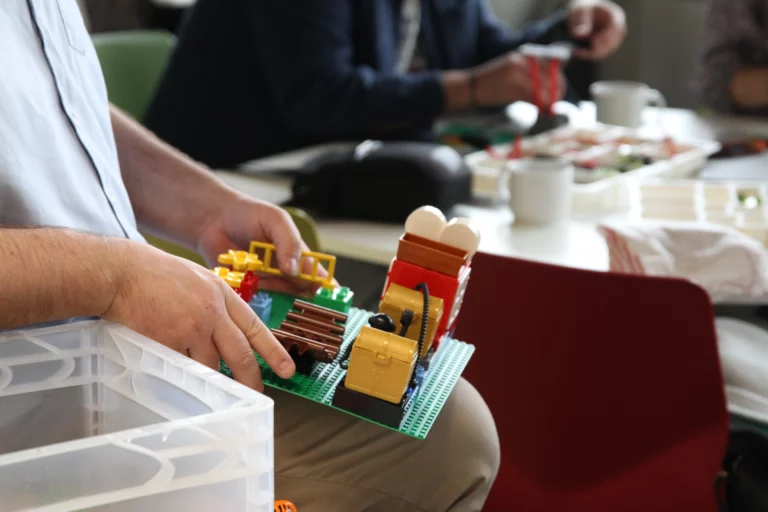
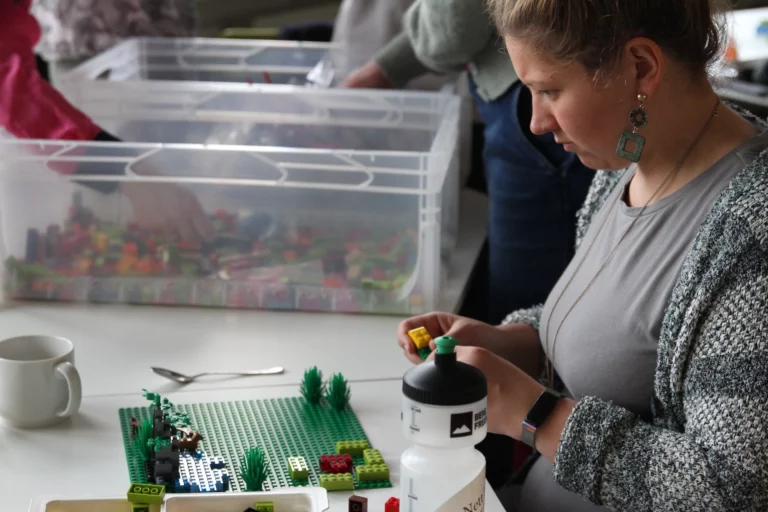
Photo credits: SciCultureD (Erasmus+ funded) 2023
Hover over the pictures to read more about the Third Places in Bochum
Where transformation happens
Bochum is a city in North Rhine-Westphalia. It is the sixth largest city of Germany, at the centre of Germany’s largest urban conglomeration, the Rhine-Ruhr Metropolitan Region.
Where in the last century coal mining and the steel industry characterised the people and landscape in Ruhr Metropolis, today the region’s main goal is to develop into a “Knowledge Metropolis”, with a strong focus on a triple transition: green, digital and social. The massive structural transition in the Ruhr Region has seen it become a location for services, technology and knowledge. Education plays a major role in Ruhr Metropolis.


